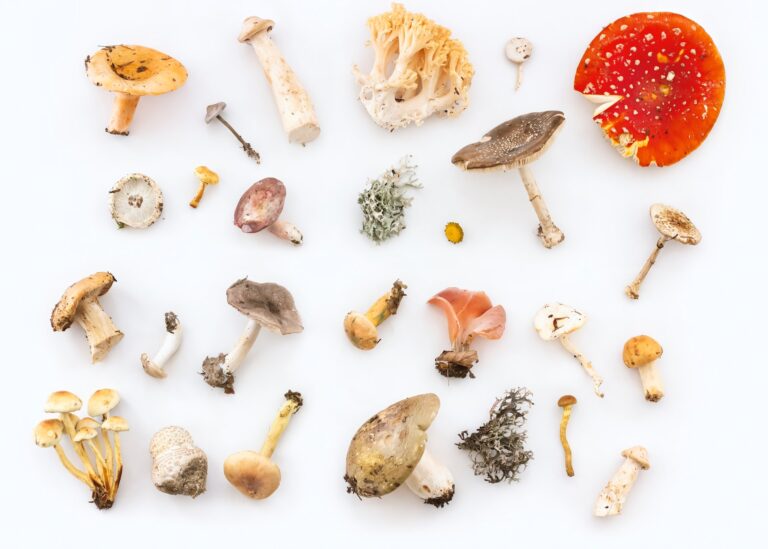As we age, it’s natural to start thinking about ways to keep our brains healthy and sharp. We may turn to crossword puzzles, brain games, or even supplements to improve our cognitive function. But what if the key to a healthy brain lies in our dietary patterns?
Recent research has shed new light on the relationship between what we eat and how our brains age. And the findings are promising – indicating that our food choices may impact not only our physical health but also our brain health. In this article, we’ll explore the latest insights into the impact of dietary patterns on brain aging.
The Link Between Diet and Brain Health
Before delving into the specifics of how certain foods affect our brains, it’s important to understand the connection between diet and brain health. Our brains require a constant supply of nutrients to function properly. These nutrients come from the food we eat. Therefore, what we eat has a direct impact on how well our brains function.
Moreover, our brains are highly susceptible to damage caused by oxidative stress and inflammation. These can be brought on by a poor diet, leading to cognitive decline, memory loss, and an increased risk of neurodegenerative diseases like Alzheimer’s and Parkinson’s.
Dietary Patterns and Brain Aging
A dietary pattern is the overall composition of our diets, including the quantity, quality, and frequency of food intake. Research has shown that certain dietary patterns can significantly affect brain aging.
For example, a study published in the Journal of Nutrition, Health & Aging found that a Mediterranean-style diet was associated with better cognitive function and a reduced risk of cognitive decline in older adults. The Mediterranean diet is rich in fruits, vegetables, whole grains, fish, and healthy fats like olive oil. It is also low in red meat and processed foods.
Another study looked at the DASH (Dietary Approaches to Stop Hypertension) diet – which focuses on reducing high blood pressure through diet – and found that it was also associated with lower rates of cognitive decline. The DASH diet emphasizes whole grains, fruits, vegetables, and low-fat dairy products while limiting sodium, saturated fat, and added sugars.
On the other hand, a typical Western diet high in processed foods, saturated fats, and added sugars has been linked to higher rates of cognitive decline and an increased risk of dementia.
So why do these dietary patterns have such a significant impact on brain aging?
Foods That Boost Brain Health
One reason may be the anti-inflammatory and antioxidant properties found in certain foods. Fruits and vegetables, for example, are rich in antioxidants that protect our brains from oxidative stress. They also contain anti-inflammatory compounds that can help reduce inflammation in the brain.
Omega-3 fatty acids, found in fish like salmon and sardines, have been shown to improve cognitive function and reduce the risk of neurodegenerative diseases. These healthy fats also play a crucial role in maintaining the structure and function of brain cells.
Nuts and seeds are also rich in healthy fats and have been linked to improved brain function and a lower risk of dementia. They also contain vitamin E, an antioxidant that may help delay cognitive decline.
In addition to specific foods, overall eating habits also play a role in brain health. For example, regularly consuming too many sugary or high-fat foods can lead to chronic inflammation in the body, including the brain. This can damage brain cells and impair cognitive function over time.
The Importance of Variety
While certain foods have been shown to have a positive impact on brain health, it’s essential to maintain a balanced and varied diet. Our brains require a diverse range of nutrients to function optimally. So, it’s important to eat a variety of healthy foods to ensure we’re getting all the necessary nutrients.
Moreover, incorporating different types of healthy fats, such as those found in avocados, olive oil, and nuts, can have a synergistic effect on brain health. These healthy fats work together to reduce inflammation and promote brain cell growth.
In conclusion, the latest insights into the impact of dietary patterns on brain aging suggest that what we eat plays a crucial role in maintaining a healthy brain. By following a balanced, diverse diet rich in fruits, vegetables, healthy fats, and whole grains, we can potentially slow down cognitive decline and reduce our risk of neurodegenerative diseases. So, the next time you reach for a snack, remember that you’re not just feeding your body – you’re feeding your brain too.





